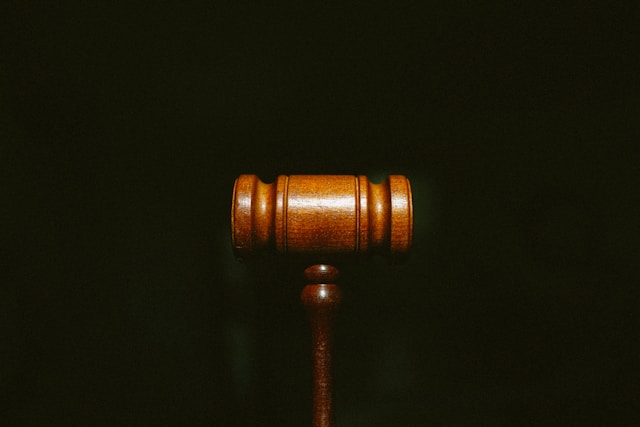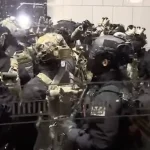On December 3, 2024, President Yoon Suk-yeol took the unprecedented step of declaring martial law, citing a dire threat to South Korea’s constitutional order. In a nationally televised address, Yoon accused the opposition party of paralyzing government functions through excessive impeachment motions, budget cuts targeting core national programs, and actions he characterized as attempts to destabilize the state. Declaring the nation in a state of peril, he pledged to dismantle what he called “anti-state forces” undermining the republic’s democratic foundations.
This dramatic move has reignited long-standing concerns about the potential misuse of martial law powers. Critics, including constitutional experts and opposition leaders, contend that Yoon’s justification—rooted in legislative gridlock and political dissent—does not meet the constitutional criteria for such an extreme measure. They argue that martial law is reserved for emergencies involving war or severe internal unrest, neither of which aligns with the current situation. The declaration, which empowers the military to override civilian governance and curtail civil liberties, has drawn comparisons to South Korea’s darkest chapters, including the suppression of the Gwangju Uprising in 1980.
South Korea’s history with martial law has always been fraught with controversy. Instances of its invocation, such as the military’s response to the Gwangju protests and the 2017 “contingency plan” scandal, underscore how emergency powers have been weaponized to stifle dissent and consolidate authority. These events highlight the dangers of unchecked executive power, further emphasizing the urgent need for legal reform.
The 2024 Martial Law Reform Bill, introduced just weeks before this declaration, was designed to prevent exactly such scenarios. It seeks to impose stricter checks on the executive, requiring parliamentary approval for martial law declarations and ensuring accountability mechanisms are in place. Yet, Yoon’s actions have exposed the lingering vulnerabilities in the existing system, underscoring the high stakes of the proposed reforms.
Currently, South Korea’s laws governing martial law grant significant discretion to the executive branch. The president can declare martial law during times of war or severe internal unrest, yet the criteria for such declarations remain vaguely defined. This lack of specificity raises concerns about potential misuse, as demonstrated by historical precedents. Under martial law, the military is empowered to override civilian governance, restrict freedoms of speech and assembly, and limit press operations, creating a fragile balance between national security and democratic accountability.
This fragility stands in stark contrast to the practices of other democracies that have established more rigorous safeguards for emergency powers. In France, for example, states of emergency require parliamentary approval and are subject to judicial review to ensure compliance with constitutional protections. Germany explicitly limits emergency powers within its Basic Law, mandating legislative oversight while safeguarding civil liberties. Similarly, in the United States, martial law is rarely invoked, and courts retain oversight to prevent executive overreach.
South Korea’s ongoing reform efforts aim to address these gaps and align the nation’s emergency governance with international democratic standards. By introducing clear procedural guidelines and strengthening institutional checks, the proposed reforms seek to strike a balance between enabling effective crisis management and preserving democratic integrity. However, the persistence of broad executive authority under martial law underscores the urgency of further reforms to prevent the recurrence of past abuses.
Key Provisions of the 2024 Martial Law Reform Bill
The Martial Law Reform Bill introduced by Representative Park Sun-won represents a bold attempt to modernize South Korea’s emergency governance. By targeting historical weaknesses in the current legal framework, the bill aligns South Korea more closely with international democratic norms.
One of the bill’s cornerstone provisions is the requirement for parliamentary pre-approval before the president can declare martial law. This measure ensures that the executive cannot act unilaterally and must justify its actions to elected representatives. In extraordinary wartime circumstances, however, the president can bypass pre-approval, a provision that remains controversial due to its potential for misuse.
The bill also mandates post-ratification within 72 hours of martial law being declared, creating a dual oversight mechanism that provides an additional check on executive power. To preserve legislative functionality during crises, the reform guarantees that detained or incarcerated lawmakers can participate in parliamentary debates and votes, addressing past abuses where dissenting legislators were silenced.
Strengths: Building Democratic Safeguards
The introduction of dual parliamentary oversight is a vital improvement, ensuring that martial law declarations are subject to both pre-approval and post-ratification. Additionally, the protection of detained lawmakers safeguards legislative independence, even under extreme conditions. These measures reinforce the primacy of civilian oversight and accountability.
Weaknesses: Persisting Ambiguities
The wartime exception remains a critical loophole, as the bill does not define what constitutes wartime. This vagueness could allow executive overreach under the guise of national security. Furthermore, the absence of judicial oversightleaves martial law declarations unchecked by the courts, while inadequate civil liberties protections fail to prevent potential abuses such as the suppression of speech and assembly.
To fully address these shortcomings, the reform bill must include stricter safeguards. Defining wartime scenarios narrowly would close a significant loophole, while requiring judicial review within 48 hours would strengthen checks and balances. Explicit protections for civil liberties during martial law, such as limits on restrictions to freedom of press and assembly, are essential. Additionally, prohibiting the dissolution of the National Assembly under martial law and mandating post-martial law reviews to ensure transparency and accountability would bolster public trust.
Martial Law Through the Lens of Legal Philosophy
The invocation of martial law presents a profound legal and philosophical dilemma for any democracy. It encapsulates the tension between the necessity of maintaining order during extraordinary crises and the imperative of safeguarding individual freedoms and democratic governance. South Korea’s recent declaration of martial law by President Yoon and the ongoing reform efforts underscore this delicate balance, calling into question how far a state can and should go to protect itself without eroding its democratic foundations.
From a legal-philosophical standpoint, martial law is frequently framed as a “state of exception,” wherein ordinary legal frameworks are temporarily set aside to safeguard the state during extraordinary crises. Carl Schmitt’s theory of sovereignty encapsulates this concept, asserting that sovereignty is ultimately defined by the power to determine when such an exception occurs. This perspective underscores a fundamental tension: while the state of exception is justified as a means to preserve the legal and political order, it inherently involves acting outside the very framework it seeks to protect.
In modern democracies, however, the legitimacy of sovereignty is increasingly measured not by the ability to assert exceptional powers, but by the safeguards and limitations placed on their exercise. The unchecked use of martial law poses significant risks, as it can erode democratic principles, turning emergency powers into instruments of authoritarian control rather than mechanisms for maintaining stability. To reconcile the need for emergency action with democratic accountability, the challenge lies in ensuring that martial law is invoked sparingly, transparently, and within well-defined legal boundaries, thereby preventing its misuse as a tool for consolidating power.
The 2024 Martial Law Reform Bill is important in addressing this paradox. By reinforcing parliamentary oversight, establishing procedural safeguards, and narrowing the scope of executive discretion, it aligns with the principles of legal restraint and democratic accountability.
However, as critics have pointed out, the bill leaves unresolved ambiguities, particularly around the wartime exception and the absence of judicial oversight. These gaps highlight the need for continued refinement to ensure that the invocation of martial law remains a last resort, bound by transparency, proportionality, and accountability.
In a broader sense, the discourse surrounding martial law reflects the evolution of democratic governance in South Korea. The nation’s history, marked by struggles for democracy against authoritarian regimes, serves as a reminder of the fragility and resilience of its institutions.
The ultimate goal must be to construct a legal framework where martial law is not an exception to democracy but a mechanism that operates within its bounds, ensuring the preservation of both the state and its democratic ideals. In the end, the strength of a democracy lies not in its ability to wield power during crises but in its commitment to constrain power in the name of liberty and justice.



